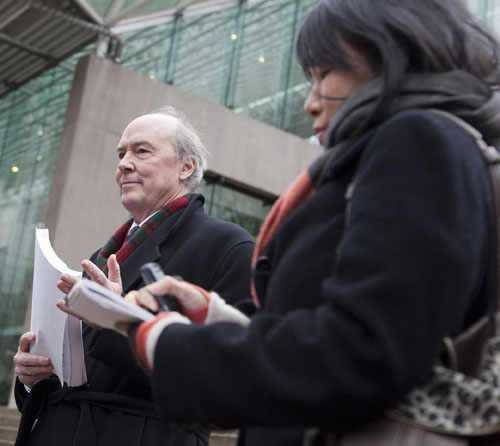British Columbia Supreme Court Chief Justice Richard Bauman upheld the country's 120-year-old ban on polygamy
,
ruling the harm it
causes to women and children outweighs any infringement of religious freedoms.

“I have concluded that this case is essentially about harm; more specifically, Parliament’s reasoned apprehension of harm arising out of the practice of polygamy. This includes harm to women, to children, to society and to the institution of monogamous marriage,” said Bauman.
In a landmark reference case to decide if the polygamy law should be struck down, Bauman ruled that the Criminal Code’s s. 293 prohibition on multiple marriages is consistent with the Canadian Charter of Rights and Freedoms and should remain. While it does contravene s. 2(a) religious freedoms, it is justified under s. 1 of the Charter due to the harm it can cause.
“I accept that for some, especially fundamentalist Mormons, the interference with a sincerely held belief represented by the prohibition in s. 293 is very significant. Still, I acknowledge the point made by the Attorneys General that some fundamentalist Mormons do choose to live monogamously without sacrificing their religious beliefs. And as we have seen, polygamy in Islam is not mandated, although it is permitted by the Qu-ran,” writes Bauman.
But at the same time, the chief justice ruled that the section shouldn’t be used to prosecute teenagers married into polygamy.
He notes, “s. 293 is consistent with the Canadian Charter of Rights and Freedoms except to the extent that it includes within its terms, children between the ages of 12 and 17 who marry into polygamy or a conjugal union with more than one person at the same time.”
It was not within his purview to suggest a remedy but suggests in his disposition that “one alternative is to read into the law an exclusion of the problematic application. Here, I would do so in respect of the noted group of potential accused persons.”
The case was brought by the British Columbia government, which wanted to test the constitutionality of the law before taking legal action against members of a breakaway Mormon sect that practises polygamy at their Bountiful settlement in the southeast of the province.
Authorities have been wary of prosecuting members of Fundamentalist Church of Jesus Christ of Latter-Day Saints out of fear the 19th century anti-polygamy law ran afoul of more recent civil rights protections and would not hold up in court.
A central issue in the case has been the question of whether the practice of polygamy involves the potential for abuse of women and children in polygamous communities.
The FLDS says it is exercising its religious freedom. The group’s critics say it subjugates women, requires underage girls to marry older men, and creates other social ills, including forcing young unmarried boys onto the streets.
Bauman said lawyers for the B.C. and Canadian governments had demonstrated “a very strong basis for a reasoned apprehension of harm to many in our society inherent in the practice of polygamy.”
If the court had overturned the current law, it would have meant Canada would be the only western country allowing polygamous marriages.
— with files from Reuters

 “I have concluded that this case is essentially about harm; more specifically, Parliament’s reasoned apprehension of harm arising out of the practice of polygamy. This includes harm to women, to children, to society and to the institution of monogamous marriage,” said Bauman.
“I have concluded that this case is essentially about harm; more specifically, Parliament’s reasoned apprehension of harm arising out of the practice of polygamy. This includes harm to women, to children, to society and to the institution of monogamous marriage,” said Bauman.